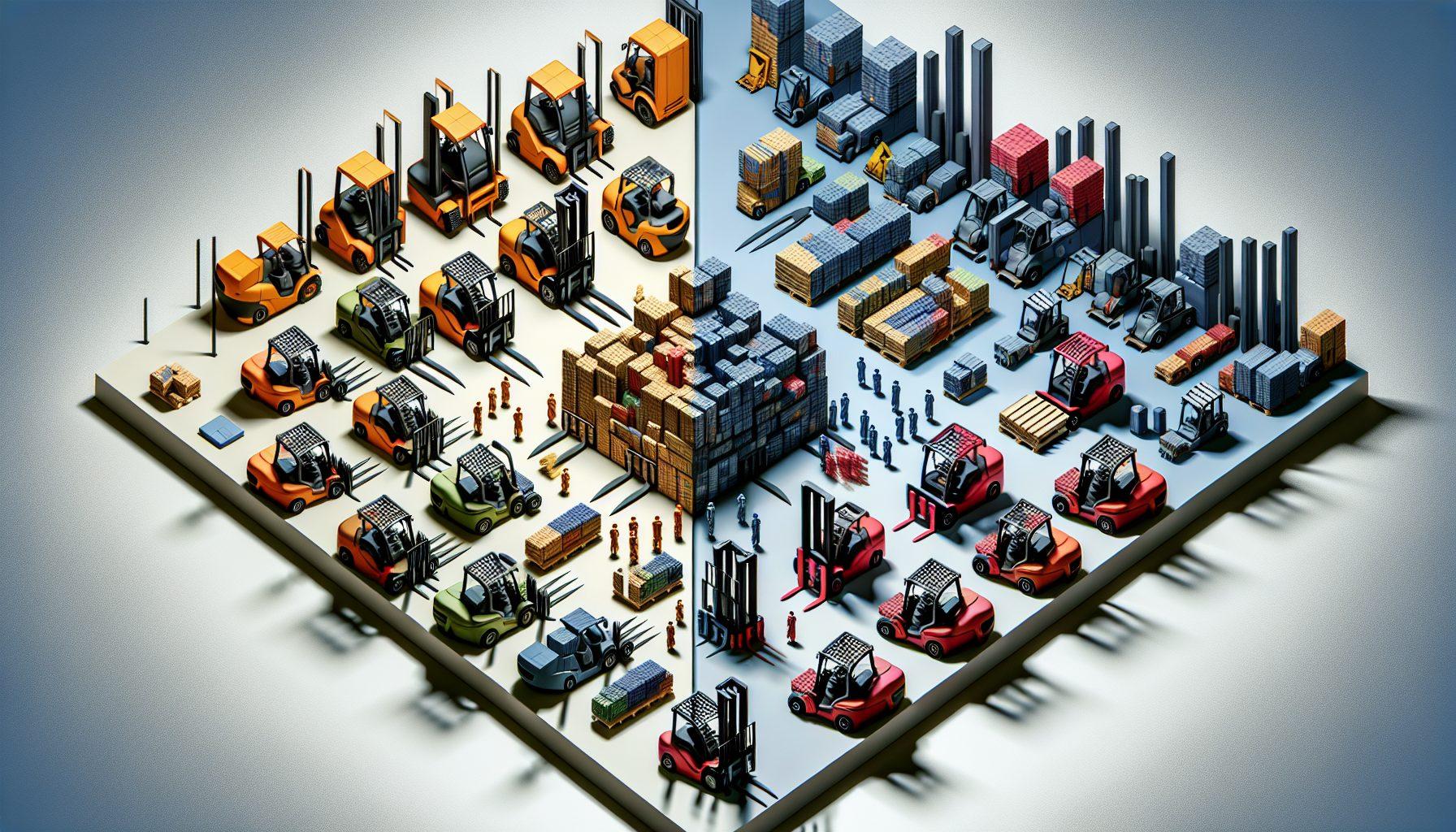Are you looking to optimize your warehouse operations? One key aspect to consider is the standardization of your forklift fleet. By implementing a standardized forklift fleet, you can unlock a range of benefits that will enhance safety, productivity, efficiency, and cost-effectiveness within your warehouse operations.
Improved Safety
Standardizing your forklift fleet can greatly improve safety in your warehouse. When all forklift operators are familiar with the same type of forklift, it eliminates the need for them to adapt to different models, reducing the risk of accidents caused by unfamiliarity. Additionally, consistent training and maintenance protocols can be established for the standardized fleet, ensuring that all operators are well-equipped to handle the equipment safely. This results in a safer working environment for your employees and reduces the likelihood of injuries or damages.
Increased Productivity
Standardization of forklift fleet leads to increased productivity in several ways. Firstly, when all forklifts are of the same model, operators can quickly become proficient in their operation, reducing the learning curve and minimizing downtime. Familiarity with the equipment allows for quicker and more efficient handling of tasks. Standardization also streamlines maintenance and repairs, as spare parts and service protocols are consistent across the fleet. This reduces maintenance time and keeps your forklifts operating at optimal performance levels.
Moreover, standardization enables better deployment and allocation of forklifts based on workload analysis. With a standardized fleet, it becomes easier to assess the fleet’s capacity and allocate resources accordingly. This prevents bottlenecks and ensures that forklifts are efficiently utilized, leading to increased overall productivity in your warehouse.
Enhanced Efficiency
Standardizing your forklift fleet promotes efficiency within your warehouse operations. Having a uniform set of forklifts simplifies the training process for new operators, as they only need to learn one type of equipment. This reduces the time and effort required for training, allowing new hires to quickly integrate into your operations. Additionally, standardized forklifts often come with advanced features and technologies that can further enhance efficiency, such as advanced control systems, improved ergonomics, and better battery management systems.
Furthermore, standardized forklifts facilitate better inventory management and space utilization. With a consistent fleet, you can better plan and optimize the layout of your warehouse, ensuring efficient movement of goods and minimizing the need for excess space. This can lead to significant cost savings and increased storage capacity.
Cost-Effectiveness
Implementing a standardized forklift fleet can also result in cost savings for your warehouse operations. By having a uniform fleet, you can negotiate better deals with suppliers, as you are purchasing a larger volume of the same model. This can translate to lower acquisition costs and better warranty agreements. Moreover, standardized forklifts are generally easier and cheaper to maintain, as technicians become familiar with the equipment and spare parts can be purchased in bulk.
Additionally, standardization enables better fleet management and optimization. With a unified fleet, you can implement effective maintenance schedules, manage fuel and energy consumption, and accurately track usage and costs. This level of control and visibility allows you to identify any inefficiencies or areas of improvement within your fleet, leading to long-term cost savings.
In conclusion, standardizing your forklift fleet offers numerous advantages for optimizing your warehouse operations. From improved safety and increased productivity to enhanced efficiency and cost-effectiveness, a standardized fleet can transform your warehouse into a well-oiled machine. If you are ready to take the next step and standardize your forklift fleet, consider partnering with a company like HCO Innovations. With their expertise in warehouse optimization solutions, they can help you streamline your fleet management and unlock the full potential of your operations.

